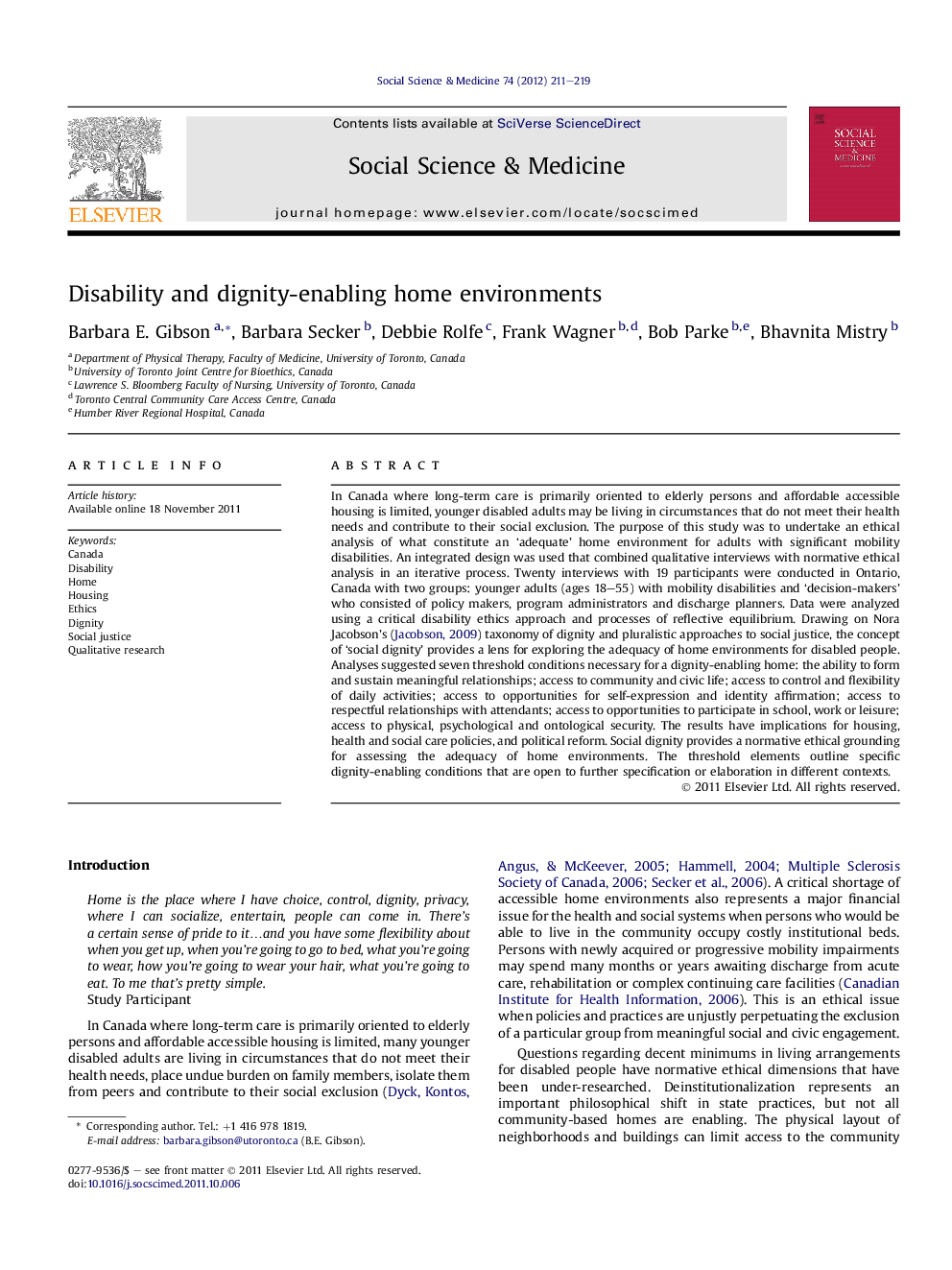| کد مقاله | کد نشریه | سال انتشار | مقاله انگلیسی | نسخه تمام متن |
|---|---|---|---|---|
| 952634 | 927529 | 2012 | 9 صفحه PDF | دانلود رایگان |

In Canada where long-term care is primarily oriented to elderly persons and affordable accessible housing is limited, younger disabled adults may be living in circumstances that do not meet their health needs and contribute to their social exclusion. The purpose of this study was to undertake an ethical analysis of what constitute an ‘adequate’ home environment for adults with significant mobility disabilities. An integrated design was used that combined qualitative interviews with normative ethical analysis in an iterative process. Twenty interviews with 19 participants were conducted in Ontario, Canada with two groups: younger adults (ages 18–55) with mobility disabilities and ‘decision-makers’ who consisted of policy makers, program administrators and discharge planners. Data were analyzed using a critical disability ethics approach and processes of reflective equilibrium. Drawing on Nora Jacobson’s (Jacobson, 2009) taxonomy of dignity and pluralistic approaches to social justice, the concept of ‘social dignity’ provides a lens for exploring the adequacy of home environments for disabled people. Analyses suggested seven threshold conditions necessary for a dignity-enabling home: the ability to form and sustain meaningful relationships; access to community and civic life; access to control and flexibility of daily activities; access to opportunities for self-expression and identity affirmation; access to respectful relationships with attendants; access to opportunities to participate in school, work or leisure; access to physical, psychological and ontological security. The results have implications for housing, health and social care policies, and political reform. Social dignity provides a normative ethical grounding for assessing the adequacy of home environments. The threshold elements outline specific dignity-enabling conditions that are open to further specification or elaboration in different contexts.
► Home-related programs focus on disabled people’s basic physical needs with little regard for other aspects of well-being.
► An adequate home environment is one that enables social dignity through seven required conditions of access.
► This study of programs in Canada outlines a framework for establishing home environments that are minimally compatible with social dignity.
Journal: Social Science & Medicine - Volume 74, Issue 2, January 2012, Pages 211–219